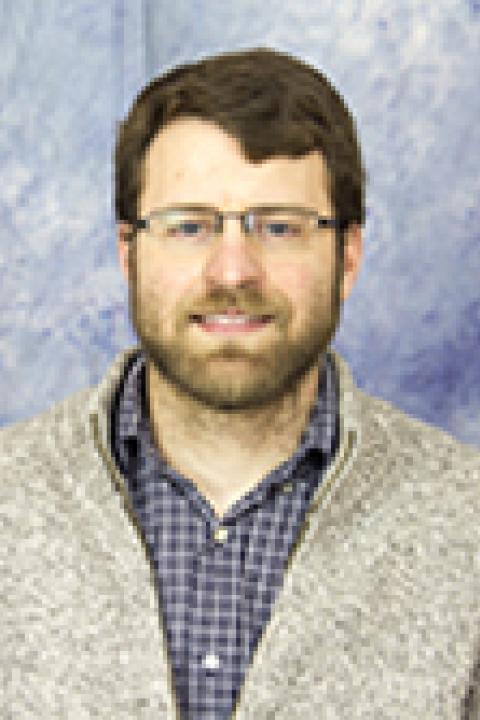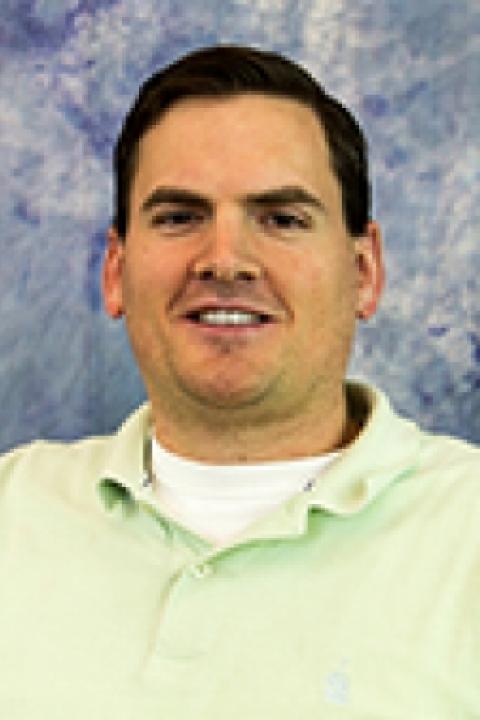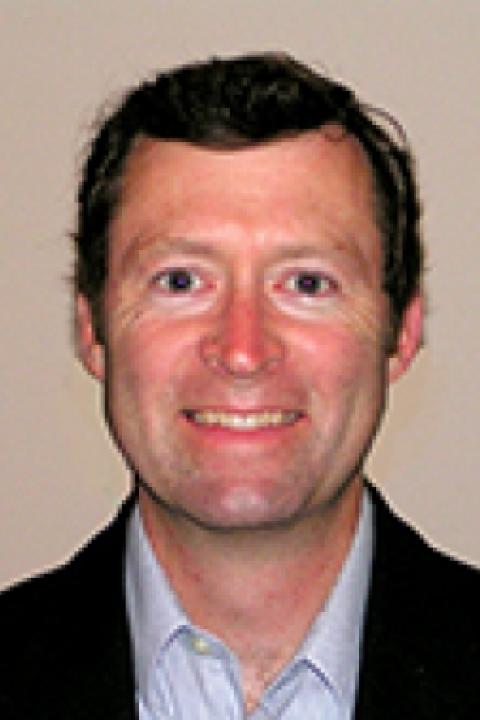The Applied Mathematics: Computational Option major at UNH combines mathematical theory with computational methods, offering a powerful toolkit for tackling complex problems in today’s world. Here, you’ll be exposed to a dynamic blend of theoretical rigor, practical application, and computational models thanks to option specific courses in computer science. With hands-on experience, personalized mentorship from esteemed faculty, you'll develop critical thinking skills and analytical prowess essential for success in fields such as finance, data analysis, engineering, and programming. Additionally, you will be prepared for graduate study in applied mathematics, computer science, or a related field.
What is the computation option in applied mathematics?
This option in the applied mathematics degree program combines a foundation in the mathematics with coursework in computer science, computation, and data structures, including high-performance computing. Students are prepared for a wide range of careers or graduate study in applied mathematics or a related field.
Why study applied mathematics at UNH?
This program allows you to choose a specific interest and pursue it alongside accomplished mathematicians, statisticians and educators who have won prestigious honors including a Grammy Award and a MacArthur “genius” grant. Upper-level mathematics classes tend to be small, so you’ll enjoy close connections to professors as they delve into the intricacies of advanced ideas. An accelerated master’s program is available in applied mathematics, allowing students to complete their master’s degree early. This department has produced many winners of the prestigious Department of Defense SMART Scholarship.
Potential careers
- Computational scientist
- Financial services/actuary
- Mathematician/statistician (government/research/academia)
- Programmer
- Quantitative specialist in business or industry
- Software developer
- Teacher/educator/curriculum supervisor
Curriculum & Requirements
This degree program prepares students for employment and/or graduate study in a variety of fields and research specializations in which mathematics plays a critical role in the solution of important scientific and technological problems.
Sample Degree Plan
This sample degree plan serves as a general guide; students collaborate with their academic advisor to develop a personalized degree plan to meet their academic goals and program requirements.
| First Year | ||
|---|---|---|
| Fall | Credits | |
| MATH 425 | Calculus I | 4 |
| CS 415 | Introduction to Computer Science I | 4 |
| Discovery Course | 4 | |
| Inquiry Course | 4 | |
| MATH 400 | Freshman Seminar | 1 |
| Credits | 17 | |
| Spring | ||
| MATH 426 | Calculus II | 4 |
| MATH 445 or IAM 550 | Mathematics and Applications with MATLAB or Introduction to Engineering Computing | 4 |
| CS 416 | Introduction to Computer Science II | 4 |
| ENGL 401 | First-Year Writing | 4 |
| Credits | 16 | |
| Second Year | ||
| Fall | ||
| MATH 528 | Multidimensional Calculus | 4 |
| MATH 531 | Mathematical Proof | 4 |
| PHYS 407 | General Physics I | 4 |
| CS 420 | Foundations of Programming for Digital Systems | 4 |
| Credits | 16 | |
| Spring | ||
| MATH 527 | Differential Equations with Linear Algebra | 4 |
| MATH 644 | Statistics for Engineers and Scientists | 4 |
| PHYS 408 | General Physics II | 4 |
| CS 515 | Data Structures and Introduction to Algorithms | 4 |
| Credits | 16 | |
| Third Year | ||
| Fall | ||
| MATH 753 | Introduction to Numerical Methods I | 4 |
| CS 659 | Introduction to the Theory of Computation | 4 |
| Discovery Course | 4 | |
| Elective Course | ||
| Credits | 12 | |
| Spring | ||
| MATH 645 | Linear Algebra for Applications | 4 |
| IAM 751 | Introduction to High-Performance Computing | 4 |
| CS 758 | Algorithms | 4 |
| Discovery Course | 4 | |
| Credits | 16 | |
| Fourth Year | ||
| Fall | ||
| MATH 745 | Foundations of Applied Mathematics I | 4 |
| Discovery Course | 4 | |
| Discovery Course | 4 | |
| Writing Intensive Course | 4 | |
| Credits | 16 | |
| Spring | ||
| MATH 797 or MATH 798 or MATH 799 | Senior Seminar or Senior Project or Senior Thesis | 4 |
| Discovery Course | 4 | |
| Writing Intensive Course | 4 | |
| Elective Course | 4 | |
| Credits | 16 | |
| Total Credits | 125 | |
Degree Requirements
All Major, Option and Elective Requirements as indicated.
*Major GPA requirements as indicated.
Major Requirements
In all courses used to satisfy the requirements for its major programs, the Department of Mathematics and Statistics requires that a student earn a grade of C- or better and have an overall grade-point average of at least 2.00 in these courses.
| Code | Title | Credits |
|---|---|---|
| Required Courses | ||
| MATH 425 | Calculus I | 4 |
| MATH 426 | Calculus II | 4 |
| MATH 445 | Mathematics and Applications with MATLAB | 4 |
| or IAM 550 | Introduction to Engineering Computing | |
| MATH 527 | Differential Equations with Linear Algebra 1 | 4 |
| MATH 528 | Multidimensional Calculus 1 | 4 |
| MATH 531 | Mathematical Proof | 4 |
| MATH 644 | Statistics for Engineers and Scientists 2 | 4 |
| MATH 645 | Linear Algebra for Applications 1 | 4 |
| MATH 753 | Introduction to Numerical Methods I | 4 |
| PHYS 407 | General Physics I | 4 |
| Capstone | ||
| Select one of the following: | 4 | |
MATH 797 | Senior Seminar | |
MATH 798 | Senior Project | |
MATH 799 | Senior Thesis | |
| Total Credits | 44 | |
| Code | Title | Credits |
|---|---|---|
| Computation Option Requirements | ||
| PHYS 408 | General Physics II | 4 |
| MATH 745 | Foundations of Applied Mathematics I | 4 |
| CS 415 & CS 416 | Introduction to Computer Science I and Introduction to Computer Science II | 8 |
| CS 420 | Foundations of Programming for Digital Systems | 4 |
| CS 515 | Data Structures and Introduction to Algorithms | 4 |
| CS 659 | Introduction to the Theory of Computation | 4 |
| CS 758 | Algorithms | 4 |
| IAM 751 | Introduction to High-Performance Computing | 4 |
| Select one elective in consultation with academic advisor | 4 | |
| Total Credits | 40 | |
- 1
The full Linearity sequence, MATH 525 and MATH 526, may be used to replace the MATH 527, MATH 528, and MATH 645 requirements.
MATH 525 may be used to replace the MATH 645 requirement.
- 2
Applied Mathematics: Economics Option students must take MATH 539 Introduction to Statistical Analysis.
Program Learning Outcomes
- Students recognize common mathematical notations and operations used in mathematics, science and engineering.
- Students can recognize and classify a variety of mathematical models including differential equations, linear and nonlinear systems of algebraic equations, and common probability distributions.
- Students have developed a working knowledge (including notation, terminology, foundational principles of the discipline, and standard mathematical models within the discipline) in at least one discipline outside of mathematics.
- Students are able to extract useful knowledge, both quantitative and qualitative, from mathematical models and can apply that knowledge to the relevant discipline.
Explore Program Details
Those interested in the Applied Mathematics: Computational Option major may also be interested in the following advanced degrees. Students in the program also have the opportunity to participate in the UNH accelerated master’s program.












